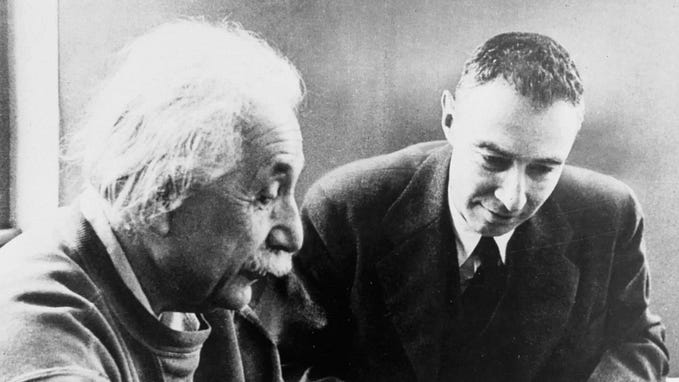Stephen Hawking’s Theory On How Space And Time Began

Stephen Hawking was a world-renowned theoretical physicist and cosmologist who significantly contributed to our understanding of the universe. One of his most famous contributions was his theory of how space and time formed, which opposed the conventional view of the universe’s origins. In this piece, we’ll look at Hawking’s idea, its implications, and its importance in physics.
Introduction
For millennia, scientists and philosophers have been interested in the issue of how the universe originated. Traditional theories about the origins of the universe, such as the Big Bang theory, are largely accepted in the scientific world. However, Stephen Hawking’s theory challenged these established beliefs and proposed a novel explanation for the origins of space and time.

The standard explanation for the origins of the cosmos
The Big Bang idea is the most commonly accepted explanation for the origins of the universe. According to this hypothesis, the cosmos began with a singularity, a point of infinite density and temperature. The cosmos expanded swiftly from this singularity, cooled, and ultimately became the galaxies and stars we know today.

The Singularity Problem
In the Big Bang theory, the concept of singularity poses a curious and difficult difficulty. When we investigate this cosmic phenomenon, we get to a stunning point when known physics equations fail to explain what transpired.
This unexplained singularity is crucial in our search to comprehend the universe’s beginnings, generating complicated issues that drive more investigation and the discovery of its secrets.
Its importance as an intellectual challenge cannot be pointed out, as it continues to inspire scientists and intellectuals to push the boundaries of knowledge in their never-ending quest for cosmic understanding.

Hawking’s theory of the universe’s beginning
According to Stephen Hawking’s interesting concept, the magnificent cosmos began its incredible journey through a little yet significant event — a quantum fluctuation erupting from the tranquil depths of space.
The cosmos evolved from this microscopic seed of possibility, blossoming like an outstanding fabric of cosmic wonders. Consider a primal point filled with limitless energy and warmth, poised to release its tremendous force.
This cosmic inferno of impossible intensity launched the cosmos into a mesmerizing dance of cosmic expansion and cosmic ballet, spawning galaxies, stars, and the very fabric of existence itself in an amazingly short period of time. Hawking’s vision invites us to explore cosmic mysteries.

Hawking’s Hypothesis and the Significance of quantum mechanics
Hawking’s hypothesis stated that the principles of quantum physics control the beginning of the cosmos. Quantum mechanics is a field of physics that studies matter and energy at the subatomic level. The birth of the universe, according to Hawking, was not a singularity since quantum physics allowed for fluctuations in the vacuum of space.

Hawking’s Theory and Its Importance
Stephen Hawking’s concept appeals because it aggressively questions long-held ideas about the beginnings of the universe. Hawking’s idea emerges as a fundamental milestone in our knowledge of the cosmos by presenting a unique theory for the creation of the universe that transcends the necessity for a singularity.
This interesting hypothesis takes on further relevance since it combines two pillars of scientific inquiry: quantum physics and cosmology. The intricate interplay between these essential domains of study unravels a tapestry of knowledge, encouraging us to go on a cosmic exploration and intellectual discovery journey.
Hawking’s imaginative idea pushes the frontiers of our comprehension, inviting us to delve deeper into the profound mysteries at the center of the cosmos.
The implications of Hawking’s hypothesis on the look for a comprehensive theory
Hawking’s hypothesis offers up new avenues in our search for a complete explanation of everything! This extraordinary theoretical framework attempts to reveal the secrets behind all of the fundamental forces and components that comprise our cosmos.
Hawking’s hypothesis, by cleverly combining two major schools of physics, lays the groundwork for a potential breakthrough in our knowledge of the universe. Who can say? It might be the fundamental basis we’ve been looking for to develop a grand, unified theory that ties everything together.
The quest to learn the mysteries of the universe has never been more exciting, and with Hawking’s theory guiding the way, we’re on the verge of incredible scientific breakthroughs!

Hawking’s hypothesis has been challenged.
So, here’s the deal with Hawking’s theory on the birth of the universe: One of the main challenges people throw at it is that it’s pretty tough to test, you know? I mean, we can’t exactly hop into a time machine and witness the cosmic fireworks that happened billions of years ago.
Instead, we have to rely on some indirect measurements like cosmic microwave background radiation to piece together what might have gone down at the start of it all.
But here’s the catch: some physicists believe Hawking’s theory is unproven since it can’t be directly tested. Isn’t it unfortunate? It’s like attempting to solve a riddle without all of the pieces.
But hey, that’s the beauty of science — always pushing the boundaries and challenging us to come up with creative ways to uncover the secrets of the universe!
Another objection leveled against Hawking’s theory is that it does not address the issue of improving the cosmos. The fine-tuning problem arises from the observation that the physical constants and rules of the universe appear to be finely tuned for life to exist. Some physicists argue that Hawking’s theory does not address the fine-tuning problem because it does not explain why the universe’s physical constants and laws are the way they are.
Prospects for Future Research
Despite these criticisms, Hawking’s theory has inspired further investigation into the universe’s origins. Physicists are still exploring indirect ways to verify Hawking’s hypothesis, such as looking for signs of inflation in cosmic microwave background radiation. Furthermore, researchers are investigating alternative theories that expand on Hawking’s work while addressing its limitations.

Hawking’s Influence on Modern Physics
Stephen Hawking’s legacy is beyond his hypothesis on the origins of the cosmos. His study of black holes and the nature of time has influenced our knowledge of the universe and encouraged new lines of inquiry. Hawking received various honors and prizes for his contributions to physics, including the Presidential Medal of Freedom and the Albert Einstein Medal.
Furthermore, Hawking’s approachable writing style and ability to communicate complex scientific ideas to a general audience made him a popular cultural figure. His writings, notably “A Brief History of Time,” have sold millions of copies and inspired a generation of scientists.

Thank you for reading. Stephen Hawking’s theory on the origin of the universe remains a topic of debate and discussion within the scientific community. While his theory faced criticism, it also paved the way for further research into the origins of the cosmos.
Scientists have been able to build upon Hawking’s work and have made significant strides in understanding the complexities of the universe. For example, recent observations by the European Space Agency’s Planck satellite have provided further evidence for the inflationary theory of the universe, which is closely related to Hawking’s own theory.
Hawking’s legacy extends far beyond his theory on the origins of the universe. His contributions to modern physics have fundamentally changed our understanding of the universe. From his work on black holes to his theories on the nature of time, Hawking has left a permanent mark on the field of physics.
Moreover, Hawking’s ability to communicate complex scientific concepts to the public has also had a profound impact. He has inspired countless individuals to pursue careers in science and has helped to bridge the gap between scientists and the general public.
As we continue to explore the cosmos, Hawking’s work will undoubtedly continue to inspire and inform new discoveries. His legacy serves as a reminder of the power of human curiosity and the importance of pushing the boundaries of knowledge.

It is truly impossible to measure Stephen Hawking's incredible contributions to modern physics. Even though his theory about the universe's creation may have received some criticism, it unquestionably opened up fascinating new fields for investigation. Scientists and the general public will continue to be enthralled by Hawking's extraordinary legacy. For countless generations to come, his profound influence on physics will be felt!









